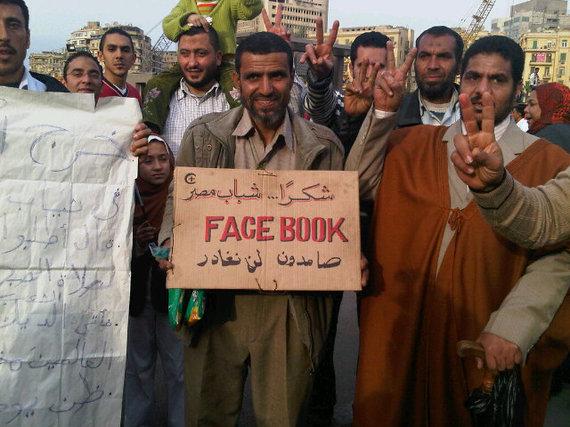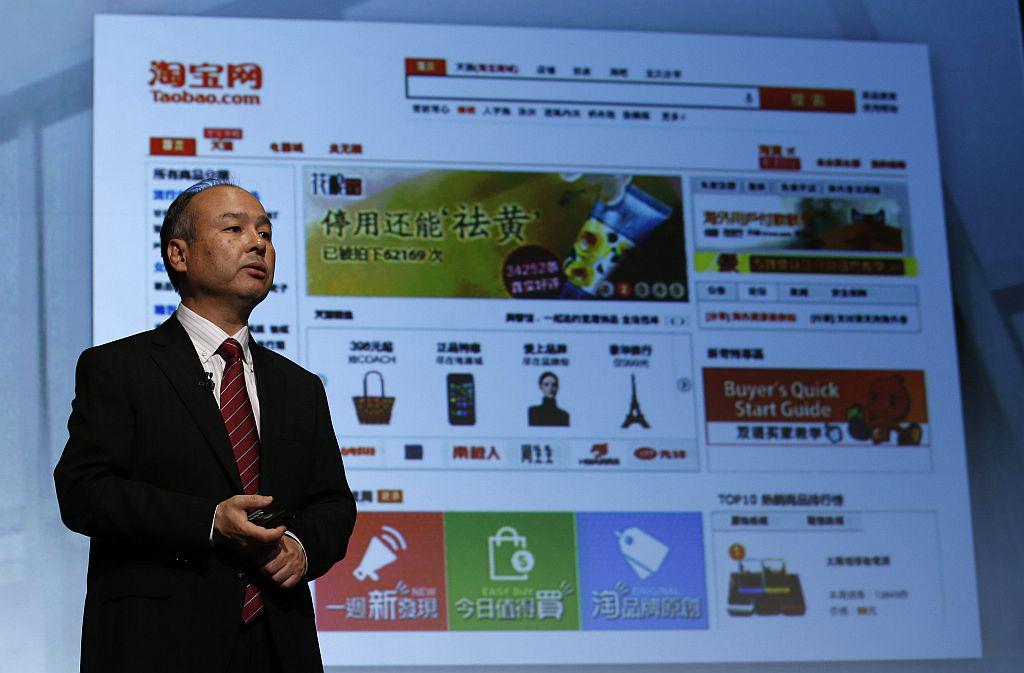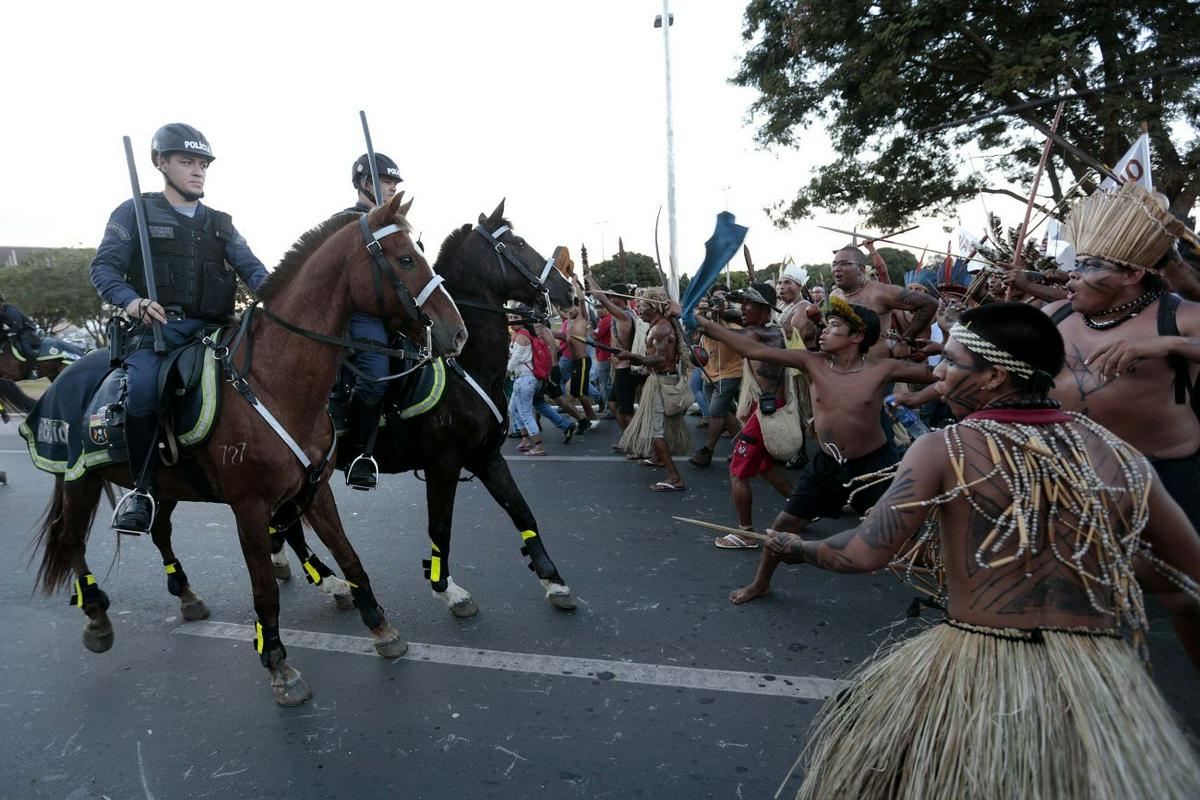
Anthropology is making easy answers less easy to defend. It is complicating things in a good way.

I feel frustrated with people doing research, doing writing for a very small group of people, and not having any voice in the world. I think that is more of a danger than an anthropologist who is doing ethicly sound research and then comes to a conclusion that he wants to be active in a political way. You can combine those two.

In China people are very much aligned with the official Communist Party view on development, Tibet being backwards, roads being good, new hotels and other tourism development all being positive.

In a global world you need to be able to emphatise with other points of view. For me, that is a big, even evolutionary step. It is a step in evolution of consciousness, when you are not just acting out of your own particularity.
As German consumers, I feel we are very hypocritical. We are googlebashing all the time. There is no country in the world with Google reciveing more flak for its data policy than Germany. But there is no country where Google has a larger market share. It goes to 98 percent. The proclaimed ethics and actual behaviour of people diverge.
She is the co-founder and the head of the largest German platform for donations, a kind of humanitarian Kickstarter: Betterplace.org. Through this platform small humanitarian projects all over the world are being financed. These projects require much less money than for example United Nation agencies with much more extensive bureaucracy.
Joana Breidenbach's research catalogue is also characterised by cosmopolitanism. In her pursuit of anthropologic answers she has visited numerous countries, from China to Russia and Egypt, while her research group, more precisely the Betterplace Lab think tank, covers tens of countries all over the world.
Breidenbach often emphasizes the limits of anthropology: how far can certain findings reach, and where are the limits of generalisations. At the same time she is convinced that anthropology as the study of mankind requires its voice within society. Before the international anthropology conference in Pionirski dom in Ljubljana, titled Why does the world need anthropologists, the question we posed to her was: Why?
In one of your research projects you studied famous Soviet physicists. They despised government oppression so hard, that they turned to physics as the only place they can really really be free. They did it in the quest to find the truth. Do you see yourself in such company; a seeker of truth?
I have done so many things in my life, but the research about the Soviet scientists was the one I enjoyed the most. It was amazing to dive in these live worlds of theoretical physicists. Yes, I see myself as a seeker of truth. First of all, I try to seek my own truth. I am a heavy meditator, I try to find more depth in me, my place in this world. Why am I here with the capacities I have?
My main motivation for anthropology is to find answers for myself - to questions I find puzzling. Though I am currently so deep in the entrepreneurial world that I do not do so much research anymore. But all the books and articles I have written more or less started out of curiosity, to find answers to certain questions for myself.
Then I have - in a way - used my audience to be forced to express my answers in a clear way. My readership was at the same time primary and secondary goal. It was, first of all, a way for me to understand the world.
How does anthropology help?
Anthropology is a wonderful discipline. It has a unique perspective on the world, it really offers an interpretive frame for very general questions. Good anthropologists confront very big, almost philosophical questions about life. They do not answer them on the same metalevel, from pure logic, but they dive deep into reality and try to find answers on the ground. The beauty of anthropology is really this combination of abstract, universal questions on one hand, and the messiness of lived experiences on the other. I find the tension between the two poles fascinating.
Would you see the world in a much differerent way, if you were not anthropologist?
I think so. I currently work in a very interdisciplinary team. We have a biologist, an economist, we have people from linguistics. When we work together, I do get a feel that there is something distinctive about anthropological perspective and the way I view the world.
We anthropologists do not want to just drill down to isolated specifics, we want to understand context, the larger framework. When I look at the use of technology for development in civil society, I do not just focus on what does this technology do in education, for example, I go wider. The frame of things I want to understand is larger than the one my colleagues would use. It also goes a bit deeper, it is broader and more multifaceted. I constantly ask this question about meaning and how does the lived reality differ from what people say.
Meaning is something very hard to extract in a positivistic, scientific way.
This is where the modesty of anthropologists comes in, which I also like. We often say: I cannot generalize this over many different places and times. But I can look at a very specific context and say: this is the best interpretation I can offer for the time being, in this place and for this group. When we say we cannot generalize something, we are very much aware of the scope of the realm we can give an interpretation for.
Although there is this tendency in anthropology to do a very detailed analysis of one subculture in a very descriptive way. Sometimes I find that very boring. My response is: so what? Why do I need to know, for example, culinary culture of Slovenian transsexuals? I dislike this micro-micro way and prefer the midway. To look at the very specifics and then answer some more relevant questions.
Can you explain this on an example from your recent work? You have been in Egypt alot, studying the impact of digital social media on society.
In Egypt I found it very interesting that alot of the revolutionary fever that people had definitely experienced in 2011, collapsed completely in the political sphere. It is so frustrating, Egypt today is a political disaster, so oppressive. But at the same time, people have found an avenue in the more socially oriented civil society topics to translate their experience. It was a generation with the experince that digital techology could really change something.
I was amazed by the people I met, by their level of confidence that they could change an ill, being that social or environmental. I met people who work on a better traffic app in order to reduce congestion in Cairo. Or on car pooling. Some were working on an app to match hospitalized people in need of blood with appropriate blood donors for transfusion.
When I look at the social scene, in this case young social enterpreneurs who use digital media, I try to read alot about the general context: the historical, sociological, political etc. situation. So, on one hand, I was studying something very concrete, these business ideas people came up with in this area. But I tried to understand what was the general movement. Which experiences had let them to come up with these innovations? This is the combination of understanding of a larger political trend in a society and a very specific innovation I look at.
Facebook is obviously very popular in Egypt. When here people have 300 Facebook friends on average, Egyptian users in general boast between 2.000 and 5.000 Facebook friends. But other mainstream platforms such as Twitter are not even nearly that popular. How come?
In Germany I hardly ever used Facebook, Twitter is much more relevant for me. But in Egypt I was forced to communicate with everybody through Facebook, sending messages and arranging appointments. I do think there is this historical context, because certain Facebook groups were very prominent in the revolution or the Arab Spring. And when you look at the growth of Facebook during the first months of 2011, there is a huge surge. People told me: "Even my grandmother went on Facebook!"
It is a very inclusive platform. Lots of people use it. People also expressed to me their feeling that there is a certain kind of intimacy and security on Facebook, because they could have closed groups where they could meet. You cannot do that on Twitter. Being LGBT is very, very dangerous in Egypt, you can go to prison for homosexual activity. LGBT people use Facebook to create a safe zone, because only the people who the administrator knew personally are allowed into the group.
Facebook in Egypt served many functions, but its popularity mainly comes from the fact that so many people went on it, like the economy of scale.
Are the Egyptians worried about Facebook's data privacy policies?
It depends on who you talk to. If you talk to us Germans, we come from one side of the spectrum. We are very concerned about privacy, Facebook is hotly debated. With every new change or release part of my friends leaves the platform in protest. Meanwhile I Egypt I have found that awareness of data policy is very limited. I would say that is true around the world as well. We have done global research among civil society organizations, wether they are worried about what people do with their data. Only a very small group of activists is concerned about it, like people from the open source movements, who would frequently voice their concerns, but it is not at all a concern to the general population.
Betterplace lab partnered with Mozilla to produce that report on privacy, transparency in trust in a digital world. You have personally focused on China. What have you found out about the Chinese attitudes on web surveillance?
Yet again, most of people I have talked to voiced very little concern. They say: "Well, the government is reading everything anyway. So why would we be concerned of the big companies doing it?" So they joke that Alibaba or Tencent or any other big telecommunication platform companies in China share their datacentres with the Communist Party in Bejing. Obviously there are also very concerned activists, who are against censorship and are relentlessly harassed by the government. Their groups are being closed down or trolled. So people are aware of it, but very disillusioned. That a world could exist where their data is safe? Not here, they would say. The majority of civil society organizations, where you would expect a higher awareness of these topics, was even fairly cynical ... and realistic, I would say.
China is the state with the most internet users in the world. According to UN statistics, the are 640 million Chinese on the web, almost more than the USA, India and Japan can muster together. Yet the Chinese communist government has managed to create a massive surveillance and censorship apparatus that actually works. China has shown a country can do it and get away with it. Is not this a scary turnout of events that could signal the path for the Western states as well?
I would agree, it is scary. Obviously there are different phases. Early on we believed that no authoritarian regime would survive the coming and widespread usage of internet in their country. The contrary happened: they have proven it is possible to keep up with the dissidents and that you can patrol the internet to a certain degree.
As an anthropologist you probably overfocus on resistance and agency. You do find where people dig out pockets of internet where they can enjoy a certain extent of protection online. I have found that in my research as well, very creative uses of the internet by the dissidents. For example, they were collecting donations by establishing shops on the Alibaba website, the Chinese Ebay. The payment for 'whatever' would then be transferred to the families of political dissidents. So there were indeed cases where the state could not keep up.
But at the same time the Chinese case tells me that the things are not black and white. You can find resistance, innovation and nuance in spheres you would not expect. In China there is a new sentiment, that actually gets shared by people online alot: care for children, the old, the ill. This is a quite big wave of humanitarianism in the Chinese intellect, not possible just 20 or 30 years ago.
You have popular bloggers who are bordering the illegal by trying to touch sensitive political issues. They are very successful fundraisers for certain campains of more social context. But when we turn to a more hardcore political dissent, things are indeed much more harsh.
Do the attitudes towards government and corporate surveillance over the world mimic the one in China? We know what is going on, but we think there is nothing we can really do about it?
As an anthropologist, I try to use the fieldwork techniques. But I must say that for this research, we spent one month in each country. That sets some limits on what we could find out, it is a very light way of doing fieldwork. I have been to two countries, while my colleagues have been to 21 countries total. And we did focus on civil society initiatives. Based on this, I would say that the attitudes vary alot, almost hugely.
In Estonia the state, civil society and open source activists are really aligned. They work together on many issues, because the state is so digitalized as is the civil society. There is alot of cooperation. In Indonesia, the activists do not really take the state seriously. At least in the digital sphere. They say: "Oh my god, they are helpless. Useless. Just do not bother us, just let us do our thing." Obviously the things are different in Egypt with the huge repression over the civil society going on. The digital activists really need to be very, very careful.
So I would say that in each country you find different twists of relationship between the digital activists and the government.
How do you feel about this? Has it made you to change your online habits?
I think we are in a very critical stage right now. As German consumers, I feel we are very hypocritical. We are googlebashing all the time. There is no country in the world with Google receiving more flak for its data policy than Germany. But there is no country where Google has a larger market share. It goes to 98 percent. The proclaimed ethics and actual behaviour of people diverge. And I am not excluded. I tend to be more aware of what platforms I use and what information I share, yet I do not share the view that companies like Google are evil. I see them as corporate players. Personally, I come from a very naive usage of digital communications, but have grown into more careful, hopefully more adult online behaviour.
With Betterplace we try to be inclusive and work with a number of these companies, if we find out that the people we work with are genuine and that we have aligned values on the projects we run. Although after the NSA scandal we are more careful with Betterplace which newsletter and online tool services we use. They are mainly based in the US.
Research projects took you to the Altai region, to the border of China and Russia. What you encountered there were fears of the Chinese immigrants "overflowing" the Russian Sibera and very different views of what development means.
There is something interesting, when you compare Russia and China in this regard. Both countries still have an enormous influence on how the general population views something like development or modernity.
How do those states influence peoples views so efficiently? By control over the media?
I think it indeed has alot with the media control. But it also comes through things like theme parks, with tourist products, with what people see when they explore their own country. There are all sorts of nudges towards a certain kind of view. In China people are very much aligned with the official Communist Party view on development, Tibet being backwards, roads being good, new hotels and other tourism development all being positive. It was pretty much a 'high modernity' discourse.
Interestingly enough, we do have a small sack of Chinese who are learning very fast. Who are plugged in into a more differentiated, critical view of development. It is definitely not all mainstream. But in general I was quite surprised the Chinese are. My research was focused on tourism. What is the discourse of the new, affluent mainstream middle class Chinese? Even their phrases in development talk emphasised how positive thing it was. Even if it meant deforestation and desettlement of entire populations. On the other hand you could feel the legacy of a very specific socialist, even Soviet forms of discourse on the Russian side, yet they were much more critically aligned, more appreciative towards the nature.
In your Trendreport you have highlited over 600 cases of digital social innovations. Can you pinpoint one that has impressed you the most?
No doubt an Indian company called Digital Green. In India there is a tradition of outreach NGO's professionalizing farmers. Telling them about new planting techniques, about new crops they can grow, very practical agricultural information. So far this has been disseminated like theatre companies do: by people travelling from village to village and doing educational plays and giving talks. Digital Green is taking this content, digitising it and presenting it on a digital platform on very simple, feature phones. They have been able to reach hundreds of thousands of Indian farmers, disseminating agricultural knowledge. They are going about it in a very clever way. You can see alot of small inovation, lots of pilot projects, but projects that have an impact on such masses, that you do not see often.
Sound similar to what the Tarımsal Pazarlama is providing to the farmers in Turkey. Seems these digital farming projects, not Farmville of course, are becoming widespread across the world.
The Turkish project is similar, but it does some specific things. The Tarımsal Pazarlama is a network with main emphasis on marketplace. Farmers can trade on this platform, compare prices and learn. I think both projects are successful because they have a very anthropological approach. These are not systems that have been designed in some headquarters and then forcefully disseminated, pushed onto some population. It was very much a cocreation of people who of people who are very knowledgeable in one area and farmers themselves, rolling it out in a step by step way.
Can anthropology be activist and still be science?
If you are clear and transparent about your motivations, it can be done. This is not a new trend. There have always been people in the history of anthropology that have used it to influence discourse, to be activists. Often in favour of indigenous populations, but also in other areas.
For me the central question is: how transparent are you about it? If you do research and then you have a policy agenda which you really feel strongly for, I say: go for it. I want anthropologists taking more of a stand. I feel frustrated with people doing research, doing writing for a very small group of people, and not having any voice in the world. I think that is more of a danger than an anthropologist who is doing ethicly sound research and then comes to a conclusion that he wants to be active in a political way. You can combine those two.
Why does the world need anthropologists? What is the added value of this branch compared to likes of sociology, psychology, history, even social pedagogy ... ?
They all have something to say about the human condition. But why is anthropology needed? I find many disciplines saying something on the meta level. They often generalize, provide broad, big theories, which is good. But when you drill it down to the anthropological perspective you find that there are so many shades of grey. It is a discerning discipline, one that is differentiating big, important topics. Anthropology is making easy answers less easy to defend. It is complicating things in a good way. At the same time there is the danger that anthropologists lose their voice because they are so differentiated that they do not get any message accross anymore.
But has this differentiated anthropology brought you any closer to the wider truth?
It has certainly increased my joy in life. It has given me lots of excuses to travel, I have read many great books, and it has given the world a unique multiperspectivity. You need to have the capacity to take multiple, ever multiplying perspectives. We cannot just say: this is the way it is. In a global world you need to be able to emphatise with other points of view. For me, that is a big,even evolutionary step. It is a step in evolution of consciousness, when you are not just acting out of your own particularity. When you look at different judgements that work for different peoples. It does not mean that you need to agree with them, you can feel strongly for your own values, but at least you can create a space when difference can coexist.
Aljoša Masten
Anthropology is making easy answers less easy to defend. It is complicating things in a good way.
I feel frustrated with people doing research, doing writing for a very small group of people, and not having any voice in the world. I think that is more of a danger than an anthropologist who is doing ethicly sound research and then comes to a conclusion that he wants to be active in a political way. You can combine those two.
In China people are very much aligned with the official Communist Party view on development, Tibet being backwards, roads being good, new hotels and other tourism development all being positive.
In a global world you need to be able to emphatise with other points of view. For me, that is a big, even evolutionary step. It is a step in evolution of consciousness, when you are not just acting out of your own particularity.
As German consumers, I feel we are very hypocritical. We are googlebashing all the time. There is no country in the world with Google reciveing more flak for its data policy than Germany. But there is no country where Google has a larger market share. It goes to 98 percent. The proclaimed ethics and actual behaviour of people diverge.


































































